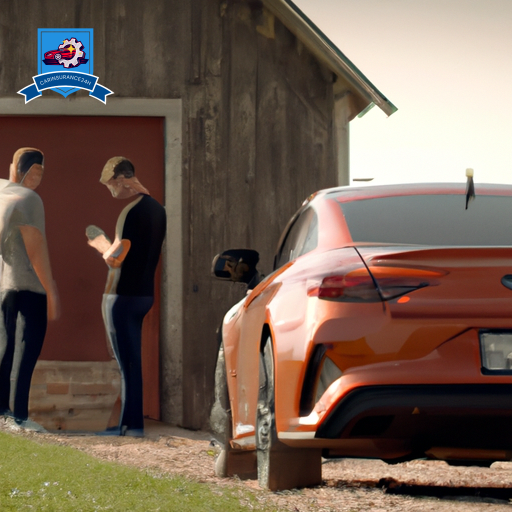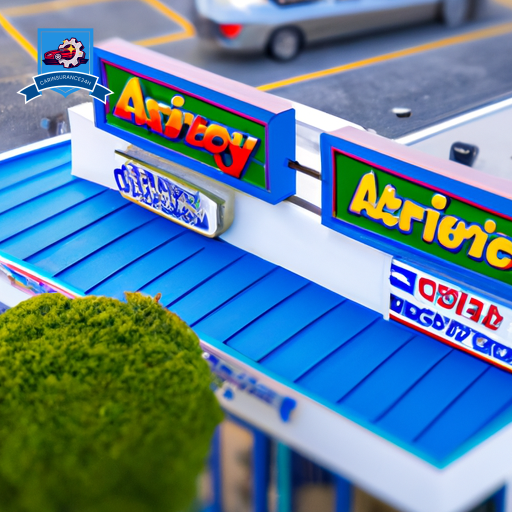Florida’s auto insurance landscape is a complex web of regulations and requirements that can often leave drivers puzzled. From navigating minimum coverage mandates to understanding the ins and outs of Personal Injury Protection (PIP) and Property Damage Liability, there’s a lot to consider when it comes to ensuring you’re adequately covered on the Sunshine State’s roads. But what about the lesser-known aspects of Florida auto insurance, like SR-22 filings and hidden discounts that could potentially save you hundreds? Let’s unravel the intricacies of Florida’s auto insurance scene and uncover tips for securing the best rates possible.
Florida Auto Insurance Overview
What are the key components of Florida’s auto insurance system? When it comes to auto insurance in Florida, understanding the state’s unique regulations and market dynamics is essential. Florida is known for having some of the highest auto insurance rates in the country. The state’s geographic location, high population density, and frequent severe weather events contribute to the elevated risks and subsequently higher premiums.
Florida’s auto insurance market is robust, with numerous insurance companies offering coverage to drivers across the state. From well-known national insurers to smaller regional carriers, Florida’s insurance market is competitive, providing consumers with a variety of options to choose from. It is important for drivers to shop around and compare quotes from different Florida insurance companies to find the best rates and coverage that suit their needs.
When considering Florida auto insurance rates, factors such as the driver’s age, driving record, vehicle type, and coverage limits all play a role in determining the cost of premiums. Additionally, Florida law requires drivers to carry Personal Injury Protection (PIP) coverage, which can impact insurance rates. Understanding how these components interact and affect insurance premiums is crucial for Florida drivers looking to secure the best coverage at an affordable price.
Minimum Coverage Requirements
Minimum coverage requirements for auto insurance in Florida are mandated by state law to ensure drivers have the necessary financial protection in case of accidents. In Florida, drivers are required to have a minimum coverage of $10,000 in Personal Injury Protection (PIP) and $10,000 in Property Damage Liability (PDL). Personal Injury Protection covers medical expenses and lost wages for the policyholder, regardless of fault, while Property Damage Liability covers damages to someone else’s property.
When it comes to coverage options, Florida law mandates specific minimums, but drivers can choose to purchase higher coverage limits for added protection. It is essential for drivers to carefully consider their coverage needs and the potential financial risks they may face in the event of an accident.
Policy exclusions and restrictions may apply depending on the insurance provider and the type of policy chosen. It’s crucial for drivers to review their policies carefully to understand any limitations in coverage. Additionally, certain circumstances such as driving under the influence or using the vehicle for commercial purposes may impact coverage eligibility.
Understanding the minimum coverage requirements and available options is essential for Florida drivers to comply with the law and ensure they have adequate financial protection in case of unforeseen accidents.
Personal Injury Protection (PIP)
Personal Injury Protection (PIP) in Florida includes coverage limits, a structured claim process, and eligibility criteria for benefits. Understanding these key points is crucial for drivers to navigate the intricacies of PIP coverage in the state. By exploring PIP coverage limits, the claim process, and the benefits available, individuals can make informed decisions regarding their auto insurance needs.
PIP Coverage Limits
The coverage limits for Personal Injury Protection (PIP) in Florida are essential to understand for individuals seeking auto insurance. PIP coverage exclusions and alternatives should also be considered when evaluating the policy. Here are some key points to keep in mind:
- PIP coverage exclusions may vary but commonly exclude coverage for intentional self-inflicted injuries.
- PIP coverage alternatives such as MedPay can provide additional coverage for medical expenses.
- PIP coverage limits in Florida are typically set at $10,000.
- PIP coverage is mandatory in Florida, and understanding the limits is crucial for making informed decisions when selecting auto insurance policies.
PIP Claim Process
Understanding the process for filing a PIP claim in Florida is crucial for individuals navigating auto insurance claims following an accident. When it comes to PIP claims, policyholders must promptly notify their insurance company after an accident. The insurer will then provide the necessary forms to start the claim process. The claim settlement for PIP claims in Florida typically covers medical expenses resulting from the accident. Policyholders need to ensure that they provide all relevant medical documentation and bills to support their claim for medical expenses. Following the submission of the required paperwork, the insurance company will review the claim and determine the settlement amount based on the policy terms and the incurred medical costs.
PIP Benefits and Eligibility
Eligibility for PIP benefits in Florida is determined based on specific criteria related to auto insurance coverage and the circumstances of the accident. To qualify for PIP benefits, individuals must meet the following eligibility criteria:
- Hold an active auto insurance policy that includes PIP coverage.
- Be involved in a motor vehicle accident.
- Seek medical treatment within a specified timeframe after the accident.
- Provide accurate and timely information to the insurance company regarding the accident and the resulting injuries.
Meeting these criteria is essential to accessing PIP benefits, which can help cover medical expenses and lost wages resulting from a car accident in Florida. Understanding the eligibility requirements is crucial for individuals seeking to benefit from PIP coverage.
Property Damage Liability
Property damage liability coverage is a crucial component of auto insurance policies in Florida. This type of coverage helps pay for damages that you cause to another person’s property with your vehicle. In Florida, drivers are required to carry a minimum amount of property damage liability coverage to ensure that they can cover the costs of any property damage they may cause in an accident.
When it comes to auto insurance in Florida, property damage liability coverage is essential for protecting yourself financially in case you damage someone else’s property in a car accident. This coverage does not apply to your own vehicle but rather to the property of others. Without this coverage, you could be personally responsible for paying for the damages out of pocket.
To better understand the importance of property damage liability coverage, let’s take a look at how it compares to collision coverage, which covers damages to your own vehicle in an accident.
| Property Damage Liability | Collision Coverage |
|---|---|
| Covers damages to other people’s property | Covers damages to your own vehicle |
| Mandatory in Florida | Optional, but recommended |
| Helps pay for repairs or replacement of the other party’s property | Helps pay for your own auto repair costs |
| Does not cover your vehicle | Specifically for your vehicle |
Having both property damage liability and collision coverage can provide comprehensive protection for both your vehicle and others in the event of an accident.
Bodily Injury Liability
Bodily injury liability coverage is a fundamental aspect of auto insurance policies in Florida, providing financial protection in the event of injuries to others caused by your vehicle. This type of coverage is mandatory in Florida, with minimum requirements that drivers must meet. Here are some key points to consider regarding bodily injury liability coverage:
-
Legal Representation: In the unfortunate event of a lawsuit resulting from an accident where you are at fault, bodily injury liability coverage can help cover legal fees. Having this coverage can provide you with peace of mind knowing that you have assistance in legal matters related to the accident.
-
Insurance Coverage: Bodily injury liability coverage helps pay for medical expenses, lost wages, pain and suffering, and even funeral expenses of individuals injured or killed in an accident where you are found liable. This coverage is crucial in protecting your assets and financial well-being in the event of a severe accident.
-
Minimum Requirements: Florida law requires drivers to have a minimum amount of bodily injury liability coverage. It is essential to review and understand these minimum requirements to ensure compliance with the law and adequate protection in case of an accident.
-
Financial Protection: Without sufficient bodily injury liability coverage, you could be personally responsible for paying significant expenses out of pocket if you are at fault in an accident. This coverage provides a financial safety net and helps protect you from potential financial ruin.
Uninsured/Underinsured Motorist Coverage
In the realm of auto insurance in Florida, a critical component to consider is Uninsured/Underinsured Motorist Coverage. This type of coverage provides protection in situations where the at-fault driver does not have insurance (uninsured) or does not have enough insurance to cover the full extent of the damages (underinsured).
Uninsured/Underinsured Motorist Coverage is crucial due to the high number of uninsured drivers on Florida’s roads. In the event of an accident with an uninsured or underinsured driver, having this coverage can help cover medical expenses, lost wages, and other damages that may not be otherwise compensated for.
Policy limits play a significant role in Uninsured/Underinsured Motorist Coverage. It is essential to carefully review and understand these limits to ensure adequate protection in the event of an accident. Additionally, being aware of coverage exclusions is crucial. Some policies may have specific situations where coverage may not apply, so understanding these exclusions is vital.
In terms of legal implications, Florida law mandates that drivers carry a minimum amount of Uninsured/Underinsured Motorist Coverage. Failing to have this coverage can result in legal consequences.
When it comes to the claims process for Uninsured/Underinsured Motorist Coverage, it is essential to promptly report the accident to your insurance company and provide all necessary documentation to support your claim. Working closely with your insurance provider can help ensure a smoother claims process and timely resolution.
Factors Affecting Premiums
The determination of auto insurance premiums in Florida is influenced by various factors that reflect an individual’s risk profile and driving history. When insurance companies calculate premiums, they take into account several key factors:
- Driving Record: A history of accidents, traffic violations, and DUI convictions can increase premiums as it indicates a higher risk of future claims.
- Age and Gender: Younger drivers and males typically face higher premiums due to statistical data showing they are more likely to be involved in accidents.
- Vehicle Type: The make and model of the car can impact premiums, with luxury and sports cars generally costing more to insure due to higher repair or replacement costs.
- Credit Score: In Florida, credit scores can also play a role in premium calculations. Individuals with lower credit scores may be charged higher premiums based on statistical correlations between creditworthiness and the likelihood of filing claims.
These factors, among others, are carefully considered by insurance companies when determining the cost of auto insurance premiums for individuals in Florida. It is essential for drivers to be aware of how these factors can influence their premiums and to maintain a good driving record and credit score to potentially lower their insurance costs.
No-Fault Insurance System
The No-Fault Insurance System in Florida provides benefits to policyholders regardless of who was at fault in an accident. Understanding the coverage requirements under this system is crucial for all drivers in the state. By delving into the specifics of these benefits and requirements, individuals can make informed decisions about their auto insurance policies.
No-Fault Benefits
No-Fault Benefits under the auto insurance system in Florida provide coverage for medical expenses and lost wages regardless of who is at fault in an accident. This system aims to streamline the claims process and ensure that individuals receive the necessary support promptly. Key points regarding No-Fault Benefits include:
- Medical expenses are covered up to the policy limit.
- Lost wages due to injury are compensated.
- The system helps in avoiding lengthy legal battles over fault.
- Provides a quicker way to access benefits after an accident.
Coverage Requirements
Within the auto insurance system in Florida, the Coverage Requirements dictate specific obligations for drivers to ensure adequate protection under the No-Fault Insurance System. Drivers must adhere to certain coverage options, discounts, policy limits, and deductibles to comply with Florida’s auto insurance laws. Below is a table summarizing these essential coverage requirements:
| Coverage Options | Discounts |
|---|---|
| Personal Injury Protection (PIP) | Safe Driver Discount |
| Property Damage Liability | Multi-Vehicle Discount |
| Bodily Injury Liability | Student Discount |
| Uninsured Motorist Coverage | Bundling Discount |
| Comprehensive Coverage |
It is crucial for drivers to understand these policy limits and deductibles to ensure they have the appropriate coverage in case of an accident.
Optional Coverage Options
Consider enhancing your auto insurance coverage with optional add-ons to protect yourself and your vehicle in Florida. When looking to customize your policy, there are several coverage add-ons worth considering:
-
Uninsured Motorist Coverage: This add-on protects you if you’re in an accident with a driver who doesn’t have insurance. Since Florida has a high rate of uninsured drivers, this coverage can be crucial.
-
Personal Injury Protection (PIP): PIP covers medical expenses for you and your passengers, regardless of who is at fault in an accident. In Florida, PIP is mandatory, but you can consider increasing the coverage limits for added protection.
-
Comprehensive Coverage: This coverage protects your vehicle from non-collision incidents such as theft, vandalism, or natural disasters. In Florida, where hurricanes are a common risk, comprehensive coverage can provide peace of mind.
-
Rental Reimbursement: If your car is in the shop for repairs after an accident, rental reimbursement coverage can help cover the cost of a rental car. This can be especially useful in Florida, where reliable transportation is essential.
High-Risk Drivers in Florida
High-Risk drivers in Florida face unique challenges when it comes to obtaining affordable and comprehensive auto insurance coverage. Insurance companies determine the level of risk a driver poses based on various factors, including driving history, age, and type of vehicle. Risk assessment plays a crucial role in how these high-risk drivers are classified and what rates they are offered.
| Risk Factor | Impact on Premiums | Ways to Improve |
|---|---|---|
| Driving Record | Higher premiums | Attend defensive driving courses to improve record |
| Age | Younger drivers are considered higher risk | Maintain a clean driving record as experience accumulates |
| Vehicle Type | Sports cars and luxury vehicles often result in higher premiums | Opt for a safer, more affordable vehicle to reduce insurance costs |
Driver classification is not solely based on past incidents but also on the potential risk a driver may pose in the future. High-risk drivers may find it challenging to secure affordable coverage, but by taking steps to improve their risk profile, such as attending driving courses or choosing a safer vehicle, they may be able to access better insurance options. Understanding how risk assessment and driver classification work can help high-risk drivers navigate the insurance market more effectively.
Discounts and Savings
Discounts and savings play a significant role in helping drivers in Florida reduce their auto insurance costs. Cost saving tips and discount opportunities can make a substantial difference in the overall expenses associated with auto insurance. Here are some strategies that drivers in Florida can consider to save on their auto insurance premiums:
-
Multi-Policy Discount: Combining auto insurance with another policy, such as homeowners or renters insurance, from the same provider can often lead to a multi-policy discount.
-
Safe Driver Discounts: Maintaining a clean driving record with no accidents or traffic violations can make you eligible for a safe driver discount.
-
Vehicle Safety Features: Installing safety features in your vehicle, such as anti-theft devices or anti-lock brakes, may qualify you for discounts with certain insurance companies.
-
Good Student Discount: Students who maintain good grades may be eligible for a discount on their auto insurance premiums.
Filing a Claim in Florida
When it comes to filing a claim in Florida, understanding the claim process overview is crucial to navigating the insurance system efficiently. Additionally, knowing the required documentation details can streamline the process and help ensure a successful claim submission. Lastly, being aware of the timeframe for resolution can manage expectations and provide clarity on when to expect a decision on your claim.
Claim Process Overview
Navigating the claim process for auto insurance in Florida requires a thorough understanding of the steps involved and the necessary documentation. When filing a claim, it is essential to be familiar with the claim settlement process and insurance coverage details. Here are some key points to keep in mind during the claim process:
- Contact your insurance company promptly after the incident.
- Provide accurate information about the accident and any damages.
- Follow up with your insurance adjuster regularly for updates on your claim.
- Understand the terms and conditions of your policy to ensure you receive the appropriate coverage.
Required Documentation Details
When filing a claim for auto insurance in Florida, providing the required documentation is crucial to ensure a smooth and efficient claims process. Document verification is a key aspect of this process, as insurers need to validate the details of the claim before proceeding further. Policyholders should be prepared to provide relevant documents such as the police report, driver’s license, vehicle registration, and any other information related to the incident. Additionally, insurance policy clarification is essential to ensure that the claim aligns with the coverage specified in the policy. By submitting all necessary documentation promptly and accurately, policyholders can expedite the claims process and increase the likelihood of a successful resolution.
Timeframe for Resolution
Policyholders in Florida should be aware of the specific timeframe for resolution when filing a claim for auto insurance in the state. It is crucial to understand the resolution timeline to avoid unnecessary claim delays. Here are some key points to note regarding the timeframe for resolution:
- Initial Contact: Notify your insurance company promptly after an accident or incident.
- Investigation Period: The insurer is required to investigate the claim within a reasonable timeframe.
- Claim Decision: The insurer must provide a decision on the claim promptly after completing the investigation.
- Payment Processing: Once the claim is approved, the insurance company should process the payment within a specified timeframe.
SR-22 Insurance in Florida
SR-22 insurance in Florida is a specialized form of auto insurance required for individuals who have been deemed high-risk by the state. The Florida SR-22 requirements mandate that individuals file an SR-22 form as a proof of financial responsibility with the state. This form is often required after serious traffic violations, license suspensions, or DUI convictions, indicating that the driver is carrying the state’s minimum liability insurance coverage.
When it comes to the SR-22 insurance cost in Florida, it’s essential to note that individuals needing this form will likely face higher premiums due to being classified as high-risk drivers. The cost of SR-22 insurance can vary depending on factors such as the driver’s age, driving record, and the insurance company they choose. Generally, individuals can expect to pay more for insurance with an SR-22 filing compared to standard auto insurance coverage.
Understanding the Florida SR-22 requirements and the associated costs is crucial for individuals navigating this specialized form of insurance. It is advisable for those requiring SR-22 insurance to compare quotes from multiple insurance providers to find the most competitive rates available. By researching and comparing options, individuals can work towards fulfilling their SR-22 requirements while managing the associated costs effectively.
Tips for Finding the Best Rates
Navigating the realm of specialized insurance such as SR-22 in Florida can be complex, but for individuals seeking the best rates, understanding key tips for finding competitive pricing is paramount. When looking for the best auto insurance rates in Florida, consider the following:
-
Comparison Shopping: One of the most effective ways to secure the best rates for SR-22 insurance in Florida is by comparing quotes from multiple insurance providers. Each company may offer different rates based on various factors, so obtaining and comparing multiple quotes can help you find the most competitive pricing.
-
Discount Opportunities: Insurance companies often provide various discounts that can help lower your premiums. Look for discounts such as safe driver discounts, multi-policy discounts, and good student discounts. Taking advantage of these opportunities can significantly reduce your insurance costs.
-
Maintain a Good Driving Record: Keeping a clean driving record is essential when it comes to securing affordable auto insurance rates. Avoid traffic violations and accidents to maintain a good driving history, as this can positively impact the rates you are offered.
-
Consider Higher Deductibles: Opting for a higher deductible can lower your insurance premiums. However, it’s essential to ensure you can comfortably afford the deductible amount in case you need to make a claim.
Frequently Asked Questions
How Does Florida’s Unique Weather and Natural Disaster Risk Impact Auto Insurance Rates?
The impact of hurricanes and weather-related claims on auto insurance rates can be significant. These natural disasters pose risks that insurers must account for when determining premiums. Factors such as the frequency and severity of storms, likelihood of damage to vehicles, and overall financial implications all play a role in setting rates. Understanding these dynamics is crucial for both insurance providers and policyholders in areas prone to such weather events.
Are There Any Specific Laws or Regulations in Florida That Affect Auto Insurance Coverage?
When examining laws and regulations that affect auto insurance coverage, various states impose minimum requirements on drivers to ensure financial responsibility. These standards typically include liability coverage to protect against bodily injury and property damage. Beyond these minimums, policyholders have the option to enhance their coverage with additional options like comprehensive or collision insurance. Legal implications may arise if policy limits are insufficient to cover damages in an accident.
What Are Some Common Misconceptions About Auto Insurance in Florida?
Common myths surrounding auto insurance often stem from misconceptions about coverage options. Some believe that basic coverage is sufficient, while others assume that all accidents are fully covered. It is crucial to debunk these misunderstandings and educate individuals on the importance of comprehensive coverage. By understanding the various insurance options available, individuals can make informed decisions that adequately protect them in the event of an accident.
How Does the Influx of Tourists and Seasonal Residents in Florida Impact Auto Insurance Policies?
The influx of tourists and seasonal residents can significantly impact auto insurance policies. Insurers may need to adjust premium rates to account for higher accident risks associated with increased traffic. Tourists’ unfamiliarity with local traffic laws and routes can lead to more accidents, influencing policy pricing. Seasonal residents may also affect policy terms due to their varying lengths of stay and driving patterns. These factors necessitate careful evaluation and adjustments in insurance offerings.
Are There Any Specific Auto Insurance Considerations for Drivers in Densely Populated Urban Areas of Florida, Such as Miami or Orlando?
Traffic congestion and parking challenges in densely populated urban areas like Miami or Orlando necessitate specific auto insurance considerations for drivers. The increased likelihood of accidents due to crowded roads and limited parking spaces can impact premium rates. Insurers may factor in the higher risk of collisions and theft in these areas when calculating policy costs. Drivers should be aware of these unique challenges and adjust their coverage accordingly to ensure comprehensive protection.
















